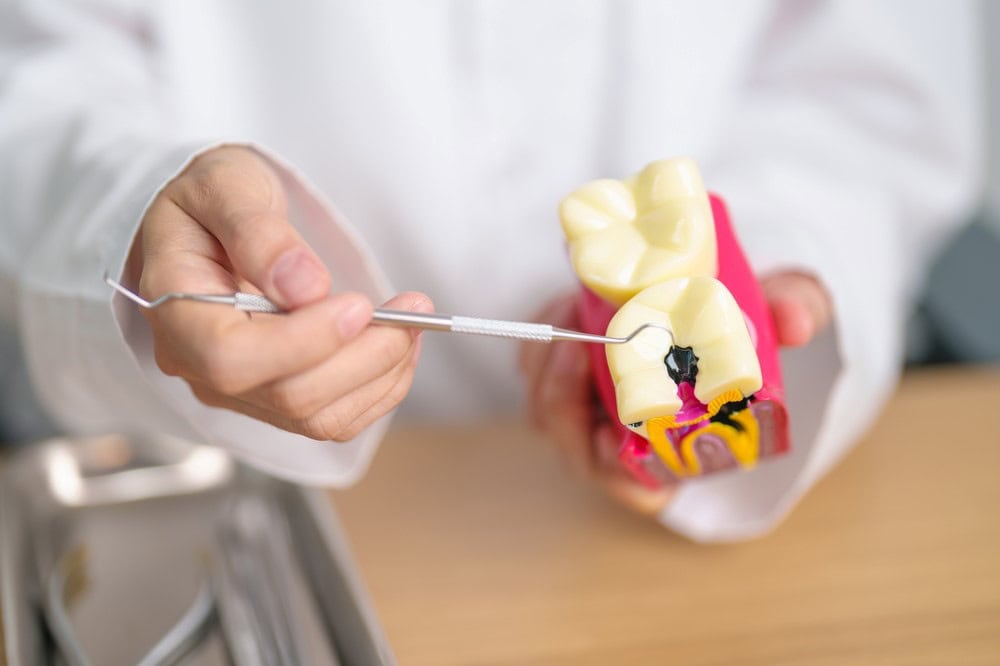
When it comes to dental health, prevention is always better than repair. Cavities and tooth decay are some of the most common issues linked to bad oral health. However, many are unsure how this occurs or what action to take when symptoms appear.
This article will explain the causes of cavities, how to avoid future decay, and when it’s time to visit the dentist. If you’re dealing with advanced issues, treatment options, like a tooth implant at our Chiang Mai clinic, may be worth considering.
What Causes Cavities and Tooth Decay?
Tooth decay starts when bacteria in your mouth break down sugar and carbohydrates, producing acid. Over time, this acid wears away your tooth enamel and leads to cavities. Some of the most common causes include:
Bacteria and Plaque Buildup
Plaque is a sticky film of bacteria that forms on your teeth. If not removed regularly, it hardens and begins to damage your enamel.
Frequent Consumption of Sugary or Acidic Foods
Regular snacking on candy, soda, and acidic drinks accelerates the breakdown of enamel.
Poor Brushing and Flossing Habits
If you don’t clean your teeth thoroughly, plaque and food particles remain, encouraging decay.
Dry Mouth or Reduced Saliva Flow
Saliva helps neutralize acids and wash away food particles. A dry mouth increases the risk of cavities.
Existing Dental Issues Left Untreated
Cracked fillings, worn crowns, or untreated gum issues give bacteria a place to thrive.
When Should You See a Dentist?
Cavities often start small and may not be painful at first. That’s why it’s important to recognize early warning signs. Even if the symptoms are mild, early treatment can prevent more complicated and potentially costly procedures later on.
You should visit your dentist if you experience sensitivity to hot, cold, or sweet foods or feel pain when biting or chewing. If you start to see visible holes or pits in your teeth or black or brown discoloration, it’s best to go for a dental checkup. Persistent bad breath that doesn’t go away with brushing may be a sign of dental issues.
How to Get Rid of Cavities
If treated early, it’s possible to stop the progression of tooth decay. This is done through:
- Fluoride treatments of early-stage tooth decay: In the early stages, remineralization with fluoride can strengthen enamel and stop a cavity from forming. This treatment is usually done during routine checkups.
- Dental fillings for small to moderate cavities: The decayed area will be cleaned out, and the space filled with a durable material like composite resin or porcelain.
- Regular dental visits: Dentists can detect decay long before it becomes painful. Routine exams and cleanings give you the best shot at avoiding deeper damage.
Once decay has formed a cavity, your dentist will recommend the appropriate tooth decay treatment based on its severity.
How to Prevent Cavities and Tooth Decay
Preventing tooth decay comes down to forming daily habits and making smart choices. Here are some strategies:
- Brush twice a day with fluoride toothpaste: Brushing helps remove plaque and provides fluoride to rebuild enamel.
- Floss daily and use antibacterial mouthwash: Flossing removes particles between teeth where brushes can’t reach, and mouthwash kills bacteria that brushing may miss.
- Cut down on sugar and acidic foods: Limit snacks such as candy, juice, and soft drinks. Rinse your mouth with water if you can’t brush your teeth after eating.
- Stay hydrated and chew sugar-free gum: Drinking water stimulates saliva and helps flush out food particles. Chewing gum also helps increase saliva production.
- Schedule routine checkups and cleanings: Preventive dental care helps spot problems before they become serious. A professional dental cleaning also removes tartar, a hardened form of dental plaque that accumulates on teeth.

Tooth Decay Treatments at GrandDent Dental Clinic
When decay has progressed, GrandDent Dental Clinic offers several advanced tooth decay treatments to restore your oral health, including dental fillings. If the decay reaches the tooth pulp, root canal therapy may be necessary to clean the infected tissue and seal the tooth. When a tooth is extensively damaged, an extraction may be recommended, and a crown or bridge may be needed to restore its strength, function, and appearance.
With nearly four decades of experience, GrandDent Dental Clinic provides expert care for early-stage cavities to complex restorations like dental implants in Chiang Mai. Each medical procedure to fix tooth decay is carefully planned and expertly performed by our dental specialists. Our multi-specialist team uses the latest technology to diagnose, treat, and prevent dental issues with precision. If you’re coming in for a cleaning or require advanced care, our English-speaking staff is ready to assist. Schedule a dental appointment today.
References
- Cavities and Tooth Decay. Retrieved on 18 July 2025 from
https://www.mayoclinic.org/diseases-conditions/cavities/diagnosis-treatment/drc-20352898 - Cavities. Retrieved on 18 July 2025 from
https://my.clevelandclinic.org/health/diseases/10946-cavities
Located near Chiang Mai International Airport, offers comprehensive dental care with over 38 years of expertise. Founded by Assoc. Prof. Thongnard Kumchai, a leading oral surgeon and former Dean of Bangkok Thonburi University, the clinic is supported by Dr. Hattapol Kumchai, an American-board certified prosthodontist, and a team of over 14 skilled dentists, including professors from top Thai dental institutes.
With a focus on personalized treatment, advanced technology, and a bilingual staff, GrandDent ensures a professional and welcoming experience, delivering long-term oral health and natural-looking results.
